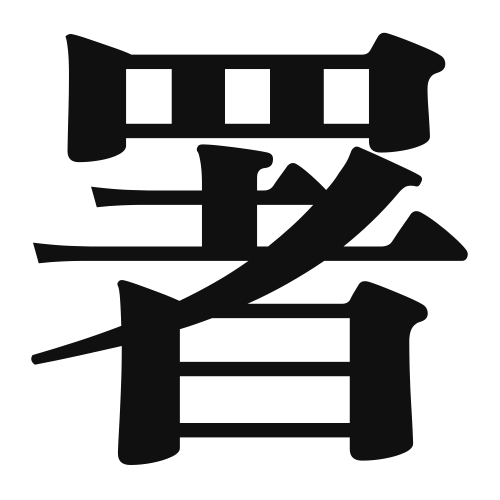1. Overview of Meaning
The kanji “署” (sho) generally means “to sign” or “to write.” It is often associated with official documents, signatures, and places where official matters are handled, such as government offices or police stations.
2. Formation and Radical
Formation of the Kanji: The kanji “署” is a compound character that combines elements to convey its meaning. It consists of the radical “土” (earth) and the phonetic component “者” (sha), which contributes to its pronunciation.
Radical: The radical of “署” is “土,” which relates to earth or ground, indicating a connection to physical places or locations.
3. Examples of Usage
Common Words and Phrases: Some frequently used words that include “署” are:
- 署名 (shomei) – signature
- 警察署 (keisatsu-sho) – police station
- 公署 (kousho) – public office
Example Sentences in Daily Conversation:
- この書類に署名してください。 (Kono shorui ni shomei shite kudasai.) – Please sign this document.
- 警察署はどこですか? (Keisatsu-sho wa doko desu ka?) – Where is the police station?
4. Synonyms and Antonyms
Similar Kanji: A similar kanji is “記” (ki), which means “to record” or “to write down.” While both involve writing, “署” often refers to official signatures or places, whereas “記” is more general and can refer to any form of writing.
Opposite Kanji: An antonym could be “消” (shou), meaning “to erase” or “to delete,” as it represents the action of removing something that has been written or signed.
5. Cultural and Historical Background
Connection to Japanese Culture: The kanji “署” is often seen in contexts related to governance and law enforcement, reflecting Japan’s structured societal systems. It is commonly used in official documents and legal matters.
Proverbs and Idioms: While there may not be specific proverbs that directly include “署,” the concept of signing and official documentation is crucial in Japanese culture, emphasizing the importance of trust and responsibility in agreements.
